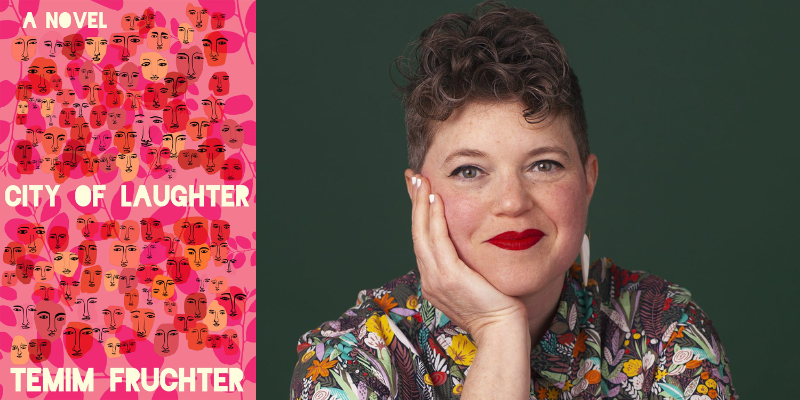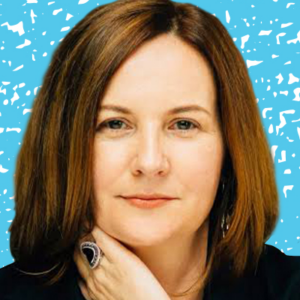Temim Fruchter on Learning to Break the Rules
In Conversation with Mitzi Rapkin on the First Draft Podcast
First Draft: A Dialogue of Writing is a weekly show featuring in-depth interviews with fiction, nonfiction, essay writers, and poets, highlighting the voices of writers as they discuss their work, their craft, and the literary arts. Hosted by Mitzi Rapkin, First Draft celebrates creative writing and the individuals who are dedicated to bringing their carefully chosen words to print as well as the impact writers have on the world we live in.
In this episode, Mitzi talks to Temim Fruchter about her new novel, City of Laughter.
Subscribe and download the episode, wherever you get your podcasts!
From the episode:
Mitzi Rapkin: What is the intersection for you of queer identity and thinking about your ancestry as being queer in your fiction, and the way you were raised as Modern Orthodox?
Temim Fruchter: So yes, I was raised as Modern Orthodox, which, in a lot of ways is a very rigid, regimented way to be raised. There were a lot of rules, and a lot of things I couldn’t do, you know, things I wasn’t allowed to do, because of my family’s religious practice. I think that my family in particular practiced a sort of, what I like to call more of a yes, Judaism, like, sure we couldn’t do the things that were prohibited, like eat cheeseburgers and go out on Friday night and stuff like that. But my dad is a musician. My mom is an art educator and an artist. And my house was always full of just tons of guests and we always just had hours long meals and singing and the storytelling that really raised me, some of it was this folklore that I think really deeply formed my imagination sitting around Friday night, everyone sort of comatose, from eating too much chicken soup, and my parents reading to us from folklore anthologies, and just feeling like, Wow, maybe this world is full of shapeshifting demons and kind of not really being sure what was real and what was possible and what wasn’t. And I like to say that the fact that that confusion formed me at such an early age I think, has served me as a writer, but then also as a queer person. First of all, I think, for me having grown up as such a rule follower queerness served a very clear purpose. For me, it was an answer to the rules. As a rule follower, I needed a container in which to start breaking those rules. And my queerness sort of allowed me this expansive sensibility to say, you know, both and, like not everything is either or not everything is a binary. In fact, most things are not a binary and it allowed me to sort of ease into expanding out of that rigidity in which I had been raised. But I also think the sort of warm and expansive part of my Jewish upbringing really allowed me to quickly embrace what I like to call a queer and radical imagination is just imagining possibilities for myself, for my communities, for this world. You know, as an anti-Zionist Jew, being able to have diasporic dreams and imagination, it just feels all very queer to me, it feels queer because it pushes against the norm, it pushes, against sort of linear capitalistic expectations of the sort of way the world has been marching along and the way that we are sort of told the bounds of our world allow us to go. So, I think queer imagination and queer possibility are really important to me. And I do think in some ways, my upbringing kind of primed me to believe in things that seemed a little bit impossible.
***
Temim Fruchter is a queer nonbinary Jewish writer who lives in Brooklyn. She holds an MFA in fiction from the University of Maryland and is the recipient of fellowships from the DC Commission on the Arts and Humanities, Vermont Studio Center, and a 2020 Rona Jaffe Foundation Writer’s Award. She is co-host of Pete’s Reading Series in Brooklyn. Her debut novel is City of Laughter.




















